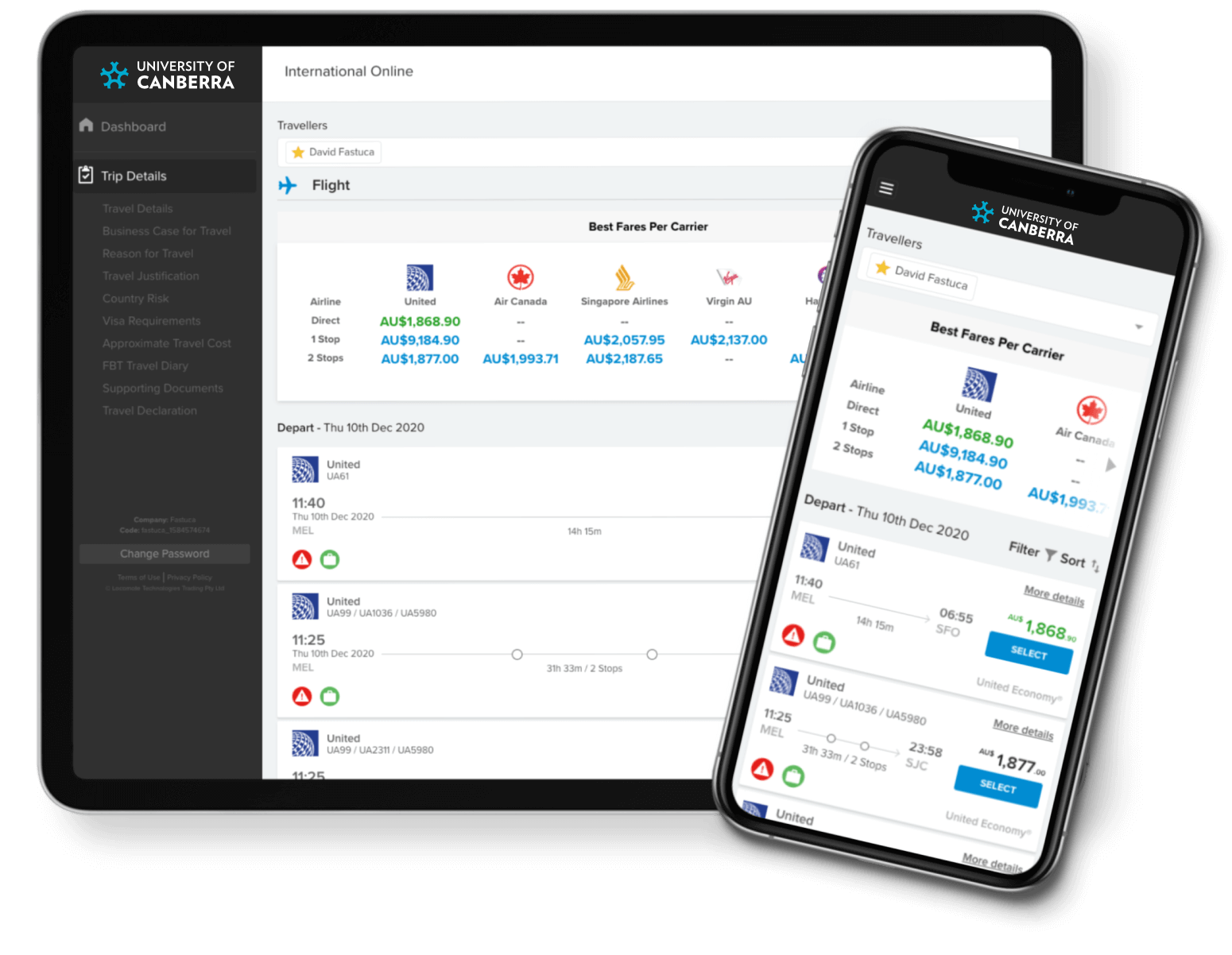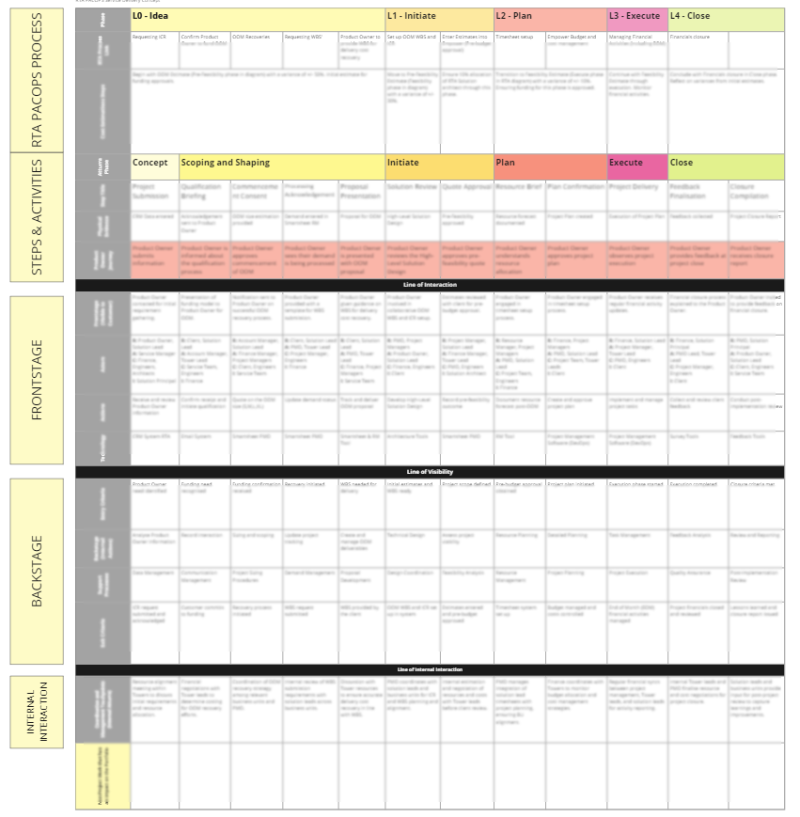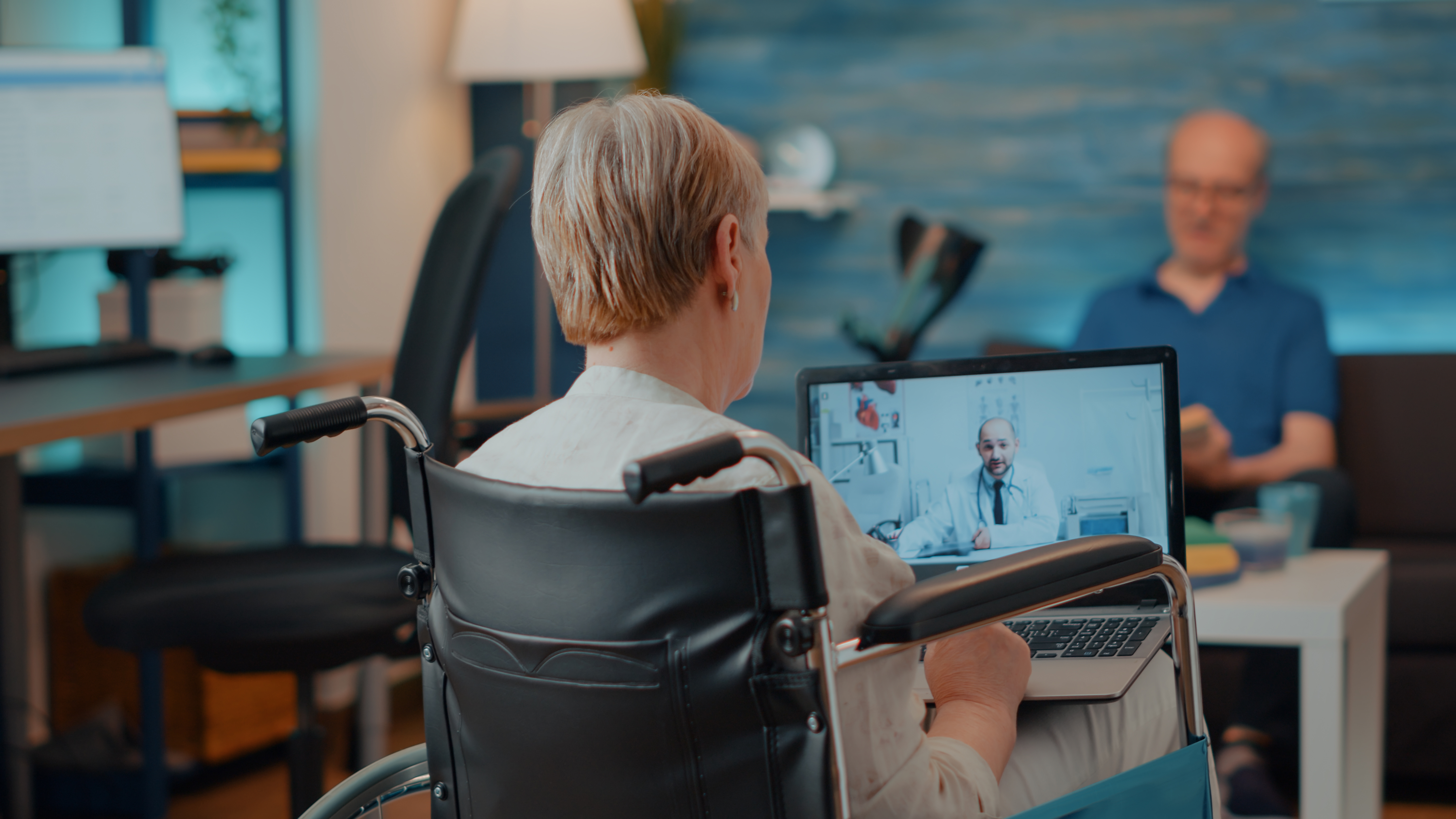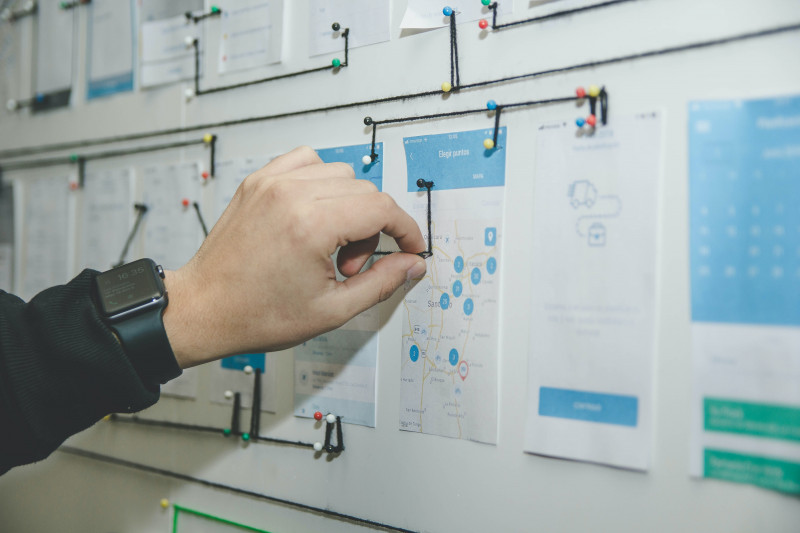Making travel simple
Challenge
For academics and the higher education sector travel is a part of life. Whether you are performing fieldwork in Papua New Guinea, presenting your latest research findings at a conference in Toronto or collaborating with co-authors in Edinborough, travel is an essential part of the international academic conversation.
But for many academic travellers, travel is a bureaucratic and risky business. The University of Canberra wanted to streamline its travel administration processes, increase adoption of its travel service and improve its duty of care to its travellers.
Expertise provided
User research | User journeys | Service design | Service blueprint | Business strategy | CX design | Project management | Change management
Outcome
Travellers, business experts and faculty administration collaborated on this project to improve the travel experience at the University of Canberra. The end to end service blueprint was entirely undocumented and included some complex processes that had been created to support the needs of individual business units and faculties.
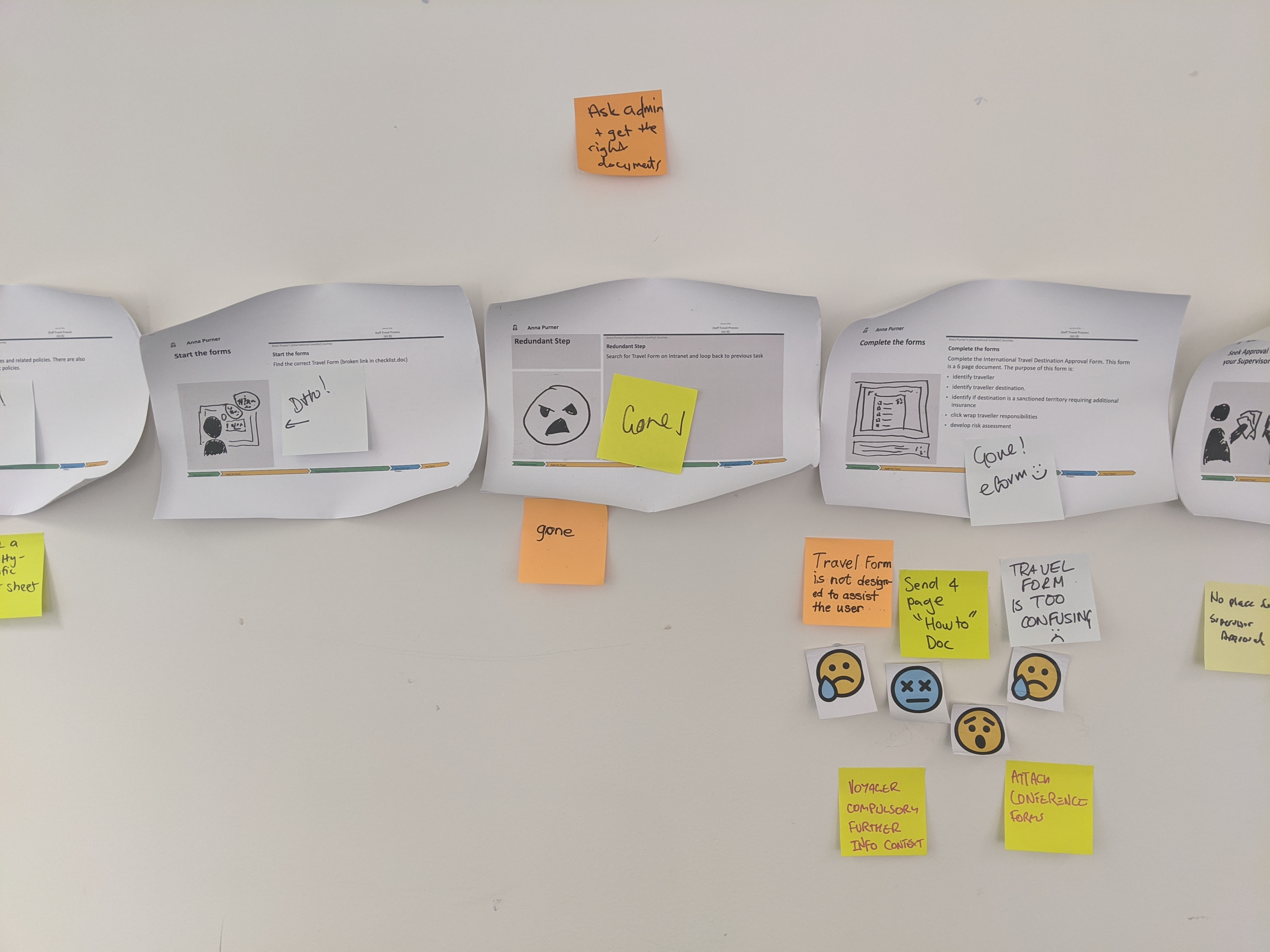
There was no consistent approach to travel and many travellers actively avoided the university travel service by booking travel independently. This approach to travel management meant that the university found it difficult to know where it's travellers were and respond in emergencies. Faculties found it difficult to ensure travellers teaching and other duties were supported and shared services was having difficulty auditing, reconciling travel expenses and maintaining their legislative, taxation and ethical responsibilities.
Through extensive research and a series of travel community workshops user personas of travellers and administrative support staff and their relationships with each other were created. A complete service blueprint was made of the existing travel service that included touchpoints in faculty admin offices, legal and risk, finance, payroll, people and diversity, shared service providers, travel booking agents, insurance brokers, and international risk consultants.
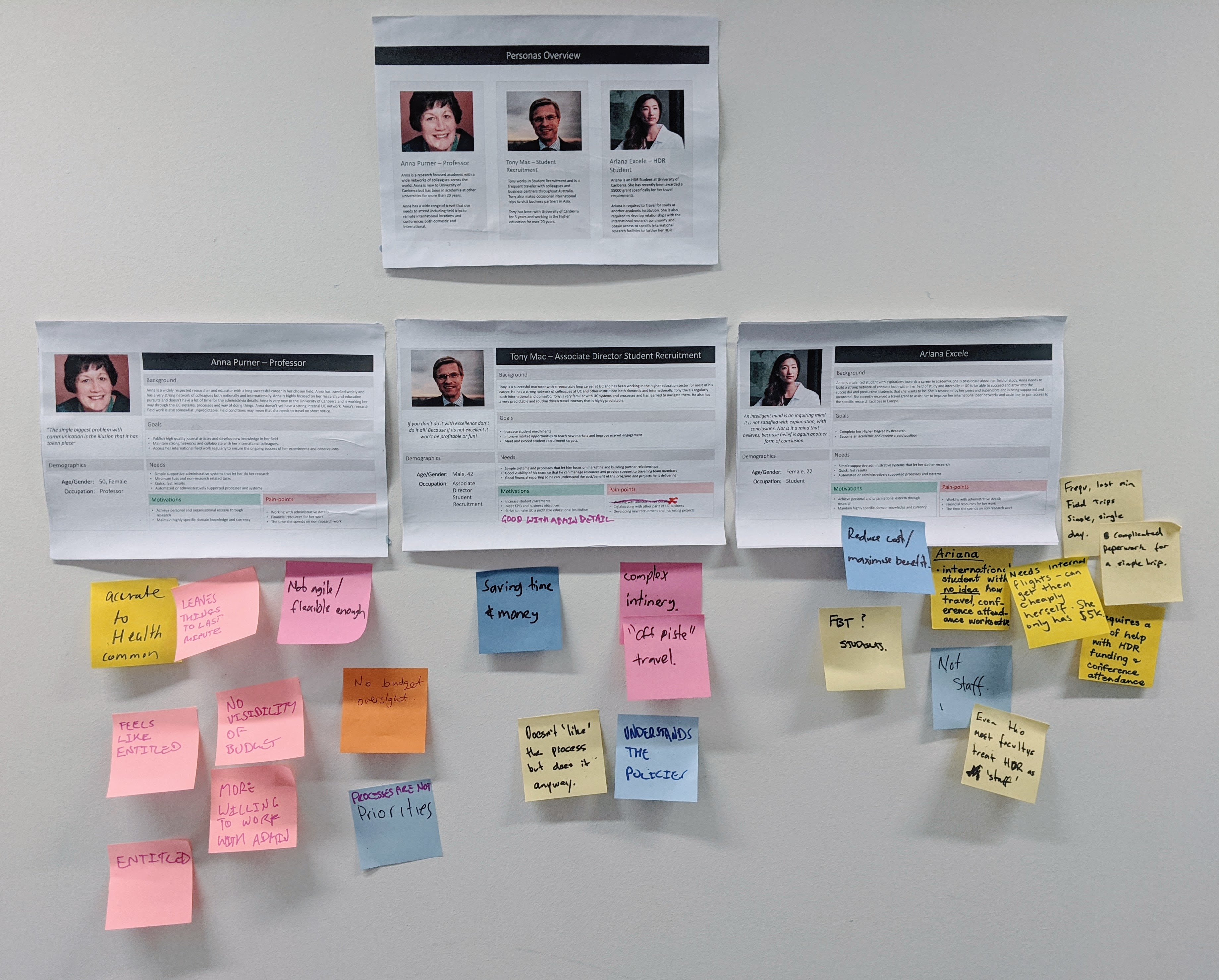
Additionally, the travel community established the following principles, drawn from theories created years ago for reforming ethics in animal experiments.
- Replace - Is your travel necessary can you use digital means, or collaborate with a local to assist with your fieldwork?
- Reduce - Do you really need to travel so often, can you make fewer trips?
- Refine - Have you planned your trip to make it really worthwhile, are you achieving the benefits you expect?
An ideation process, called an odyssey, with the travel community created a wide range of future state travel service concepts. These travel 'odysseys' were tested by the travel community for coherence, confidence, cost and favour, with a collaborative odyssey produced by the travel community from the many ideas created.
A prototype of the new travel service was created by the travel community citizen developers using Microsoft PowerApps, PowerAutomate and SharePoint. The prototype included the principles developed in the travel odyssey and created a largely automated travel workflow with a simple branching application that ensured a travel application was only as complex as it needed to be but captured all the relevant information required by the travel community to meet traveller, business and duty of care needs.
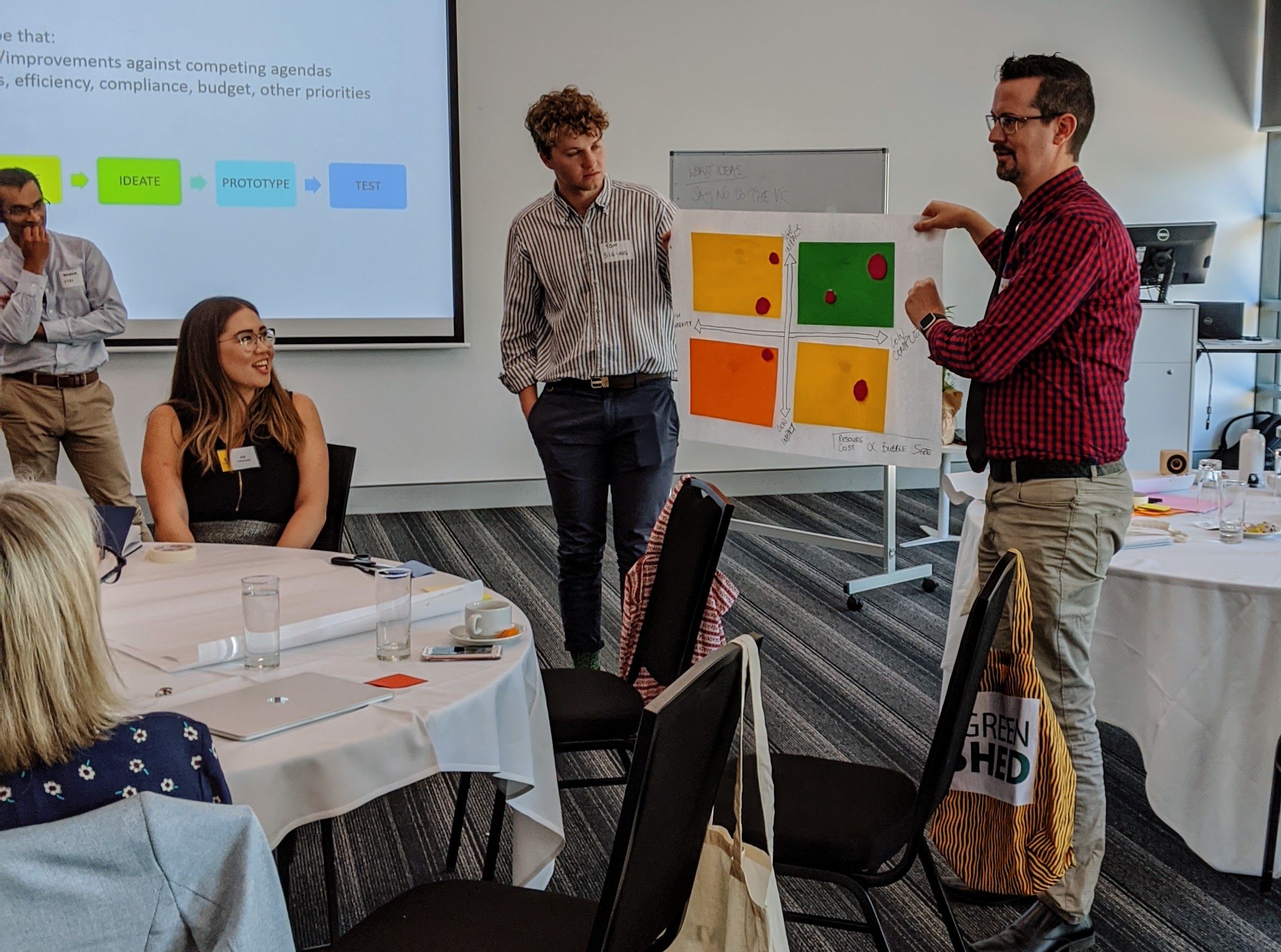
Two volunteer faculties tested the travel prototype. All aspects of travel applications and bookings and the wide variety of traveller service-journeys were tested within the prototype travel service including testing the support provided by the Travel Advisor Network, a community of practice of faculty administrators and business unit service managers intimately involved in the service design process and now responsible for supporting and caring for travellers and the ongoing travel service continuous improvement.
Finally, a project was established with the universities travel booking service provider to develop the travel service as a contracted service improvement opportunity. The community knowledge, travel framework, travel service blueprint, travel app wireframes and travel process flow diagrams were developed by the travel booking service and their technology partner into a university travel app.
The considerable service blueprint detail, working prototype, and customer journey diagrams meant the travel service provider developed the improved service, workflow, app and supporting systems integrations in a short time. Roll-out of the service was welcomed, and the service was accepted with excitement by the university travel community who felt that they had been engaged in the development process throughout the entire service design process and that the result featured all the elements that they had imagined and created together. The community felt their ideas had been made a reality.
The app includes all of the service requirements established in the travel service prototype. It supports the universities policies, business rules and includes integrations with university business systems, risk consulting systems, expense management systems, airlines, hotels and other transport service providers.
